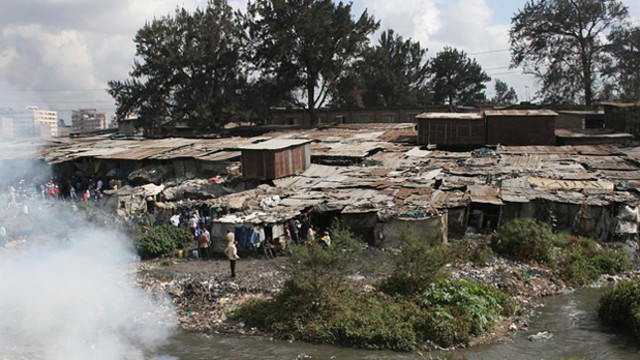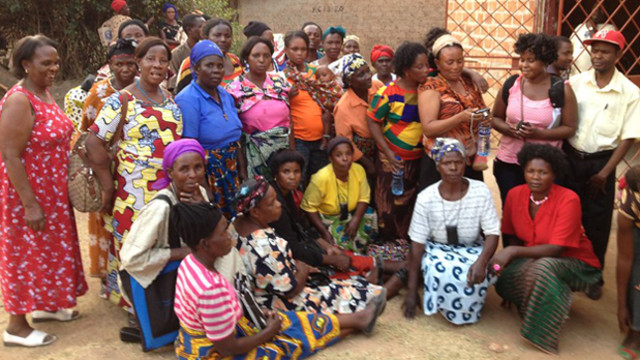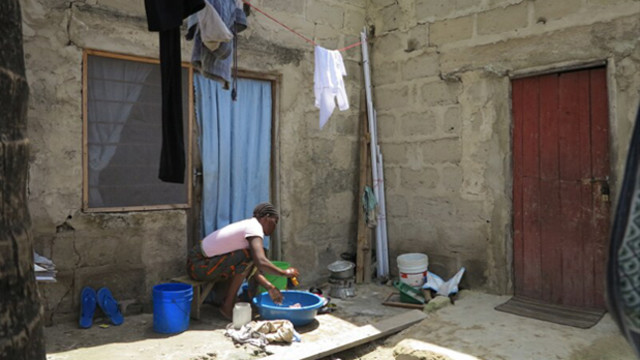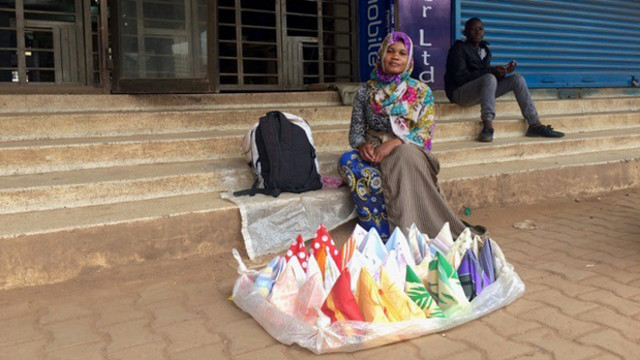Tackling air pollution in informal settlements in Kenya
The AIR (Action for Interdisciplinary Air Pollution Research) Network was established to develop integrated transdisciplinary methods to address air pollution in informal settlements in Kenya. IIED is one of 15 organisations in the network and focused on developing policy relevant messaging.
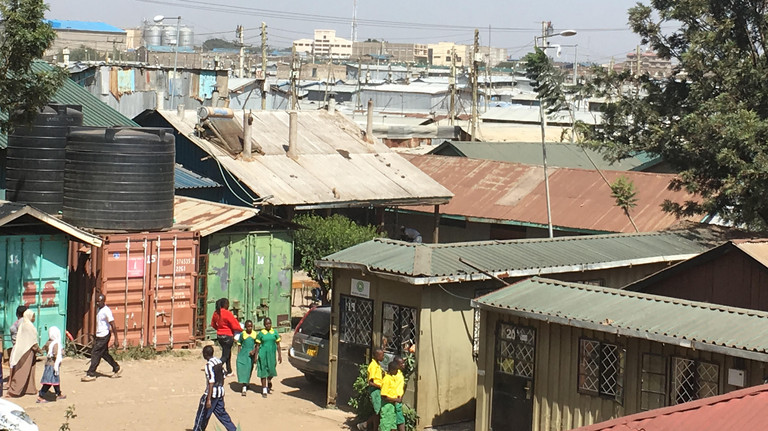
The Mukuru Kwa Njenga Informal Settlement, in Nairobi, Kenya (Photo: Anna Walnycki, IIED)
The AIR Network was established with funding from the Arts and Humanities Research Council (AHRC) to create innovative, participatory solutions to air pollution and its effects on human health in informal settlements in Kenya.
The AIR (Air Pollution Interdisciplinary Research) Network is an interdisciplinary research partnership of African and European researchers and African community members, with the long-term aim of addressing air pollution in low-resource settings in Sub-Saharan Africa (SSA).
Air pollution is a major health concern around the world, with particulate matter being one of the main pollutants of concern.
As well as reducing life expectancy, it lowers the quality of life through respiratory and cardiovascular diseases that often lead to a reduction in the resilience and productivity of people.
Levels of this air pollutant are particularly high in informal settlements. The settlements are often located near to industrial areas, busy and dusty roads, and sites of litter burning. It’s an also an issue indoors due to cooking, lighting and heating with low-quality fuels in badly ventilated huts.
What is IIED doing?
As part of the AIR Network, IIED has been exploring new approaches, bringing together researchers from different disciplines and people who live and work in the informal settlements, to discuss the issues, raise awareness and consider potential solutions.
These solutions will integrate scientific, non-scientific and societal understanding and knowledge to ensure relevance and impact.
The network comprises 15 partners from a wide range of disciplines and uses a range of methods to engage and communicate, including theatre, visual arts, mobile phones, games, storytelling and music.
Additional resources
Partners
African Population and Health Research Center
Institute of Occupational Medicine
Loughborough University
Kenyatta University
Muungano wa Wanavijiji (Kenyan Federation of Slum Dwellers)
Stockholm Environment Institute
Stockholm Environment Institute – Africa
Stockholm Environment Institute – York
University of Glasgow
University of Portsmouth
Donors
UK Medical Research Council (MRC) (from 2019)
Arts and Humanities Research Council (AHRC) Global Challenges Research Fund Partnership Award (2017-19)
